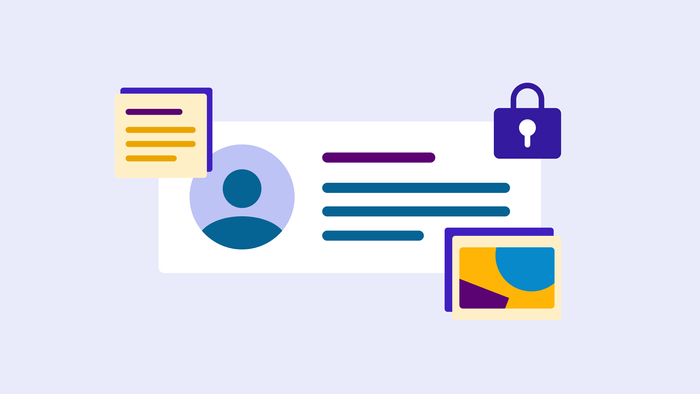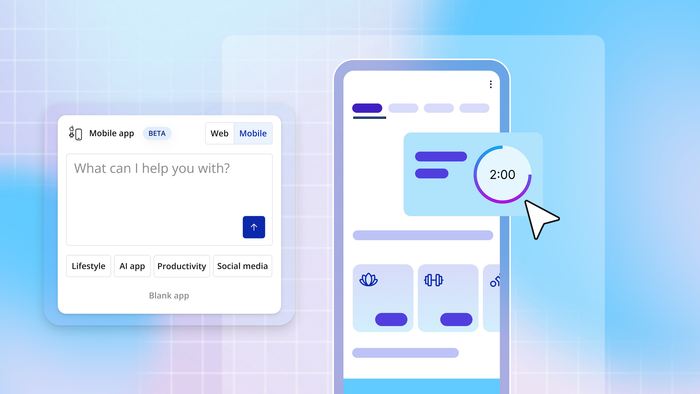Collecting data is easier than ever.
Storing it properly, using it efficiently, and protecting it in a world of ever-increasing cybercrime is a totally different game. Companies today need to think not just about the data they’re collecting and how they can use it to improve customer experiences, optimize experiences, and meet business goals, but also about customer data privacy.
As more and more of our lives have expanded into the online world, customer data privacy has become more important and more regulated. At the same time, customers have become increasingly interested in how their data is stored, managed, and protected.
In this article, we’ll give you our best practices for managing and protecting customer data.
Why customer data privacy matters
Protecting your customers’ data often doesn’t seem like a priority until it’s an emergency.
However, thoughtful data privacy policies allow you to avoid many major business hurdles. Good data privacy management creates more efficient operations, increases customer trust, protects your brand’s reputation, and helps you avoid financial and legal issues.
Cybercrime is on the rise
Cybercrime is a massive threat for online businesses, and unfortunately, it’s only becoming more prevalent.
In 2023, the FBI received a record number of cybercrime notices: almost 900,000 complaints, up 10% from 2022. Obviously, cybercrime can result in lost personal data, fraud, and more — but it’s also an expensive crime for individuals and businesses.
Cybercrime costs (losses and expenses) totaled more than $8 trillion dollars worldwide in 2023. That number is expected to reach more than $13 trillion by 2028.
With the right data management and planning in place, you can protect your business and your customers against cybercrime.
World governments are on the alert
With cybercrime on the rise, world governments are taking notice and increasing regulation and compliance standards. This means that companies — particularly those in certain industries — will be held to even higher standards for customer data privacy and security.
For example, the current US Cybersecurity Strategy is pouring energy into both dismantling threats as well as increasing security regulations and infrastructure.
What this means for businesses: Data privacy will only become more regulated, meaning there will be more standards to understand and follow. If you’re not already up-to-date on the latest regulations and standards, now is the time to get caught up.
Without trust, your brand is toast
First things first: Your customers really care about data privacy.
The way a brand protects — or fails to protect — customer data is essential to building brand loyalty and customer trust. When a brand drops the ball on security and has a massive data leak, it will be difficult, time-consuming, and expensive to recover.
Consider the data on customer perceptions:
- According to a 2023 survey, 85% of US consumers said they’d deleted a phone app and 67% had decided against making an online purchase due to privacy concerns.
- 69% of consumers said they’d avoid companies with a history of data breaches.
- 76% of companies who doubled their budgets for data privacy improvements also saw significant improvements in customer trust.
The data is clear: Improving customer data privacy goes both ways. It both reduces security incidents and helps avoid potential data breaches, but it also improves customer trust and loyalty.
How to protect customer data: 8 best practices
Of course, knowing that something is a good idea and implementing improvements are two different things.
Here are eight best practices for protecting your customer data.
Set up privacy rules properly
Setting privacy rules determines who has permission to view, edit, and add data stored in your app.
On Bubble, setting up privacy rules is pretty simple. You can define custom rules for each data type to make sure that only the users who should have access to that data actually do.
Our customizable privacy rules give you complete control, allowing you to set visibility and permissions for all of your apps and customer data.
However, we know that setting privacy rules can be unfamiliar if you don’t have a technical background. That’s why we’re constantly working to make privacy settings more intuitive on Bubble.
Alessandro Jeanteur, senior software engineer at Bubble, explains:
“It’s relatively simple to set up privacy rules [on Bubble] that protect an app very well against any data breach coming from app access. However, it’s easy to accidentally allow some data to slip through. We’re thinking through ways to properly audit all data access entry points and exit points to give customers a point of reference before they go live with their product, knowing that it’s secure.”
That is: If you’re not familiar with what your privacy rules should be, building on Bubble gives you some guardrails to make sure you’re not accidentally exposing any consumer data. Ensuring that only those who truly need access to something have that access significantly reduces the number of threat vectors your customer data is exposed to.
Store your own data securely
While you’re thinking about protecting customer data, don’t forget to protect your own data! Doing so protects both you and your customers.
This includes things that are often overlooked, such as:
- Using strong passwords on your company accounts
- Not making your app editor public
- Making sure that API keys, account tokens, and other layers of access are protected and stored carefully
Password management tools can make it easier to protect access to your own company accounts and app builders. Also, use two-factor authentication across all of your company’s accounts and devices to increase security.
Avoid storing or collecting data you don’t need
When it comes to customer data, less really is more.
One of the easiest ways to protect sensitive data is to make sure you’re not collecting customer information that you don’t really need.
As Alessandro points out,
“Since users now trust you with their own personal data, you should avoid collecting data that isn’t necessary. (No, that onboarding flow doesn’t really require a physical address…) After all, data you don’t have can’t be leaked.”
Make sure the customer data you do have is encrypted
For the customer data that you do need to collect, you’ll want to make sure that it’s encrypted before it’s stored.
Data encryption is a process by which standard text (readable data) is converted into an encoded format that’s only readable with a secret key. Encrypted data is much harder to use (or misuse) if it gets into the wrong hands, which is why encryption is such a necessary security strategy.
Bubble stores customer data in encrypted databases, with robust access models that can’t be easily accessed from the cloud. This data is exposed via the app builder in the editor, and then your app logic determines what’s shown in the app’s website and via APIs.
We’ve designed the Bubble editor to feel more natural if you’re coming from a non-technical background. This means that implementing security and privacy rules is built as an incremental step before an app goes live. This way, you’re not accidentally exposing sensitive data or storing data in an un-encrypted space.
Review data and data practices regularly
Regular audits of your data management and data protection is another critical step to making sure you can protect consumer data.
An audit can help you review:
- The types of data you’re collecting
- How and where customer data is stored
- How customer data is used
- Who has access to customer data
Once you’ve audited your data, you can better identify if you need to adjust your strategy or management, reduce the amount of sensitive data you’re collecting, or otherwise better protect consumer data.
An audit can also help you stay on top of potential threats or security issues, and review your processes for avoiding or responding to them.
At Bubble, we serve as the de facto security team for hundreds of thousands of customers, which means we’re always auditing both our systems and your systems when you build on Bubble.
Alessandro explains:
“We help you manage the first layer of security, that is, infrastructure security, when you build on Bubble. We deploy all applications on a cloud that is secure up to the latest standards, we stay up-to-date with all new threat models that get discovered, and we work around the clock to provide critical updates or help when our customers face a threat of some kind.”
Use a data management system
A good data management system and strategy helps prevent many vulnerabilities. A data management system should detail what data you’re collecting, where it’s stored, and how you’re using it.
This makes sure you can account for and prevent vulnerabilities. It also plays a major role in breaking down data silos. When data is siloed, it means that it’s stored in multiple places, which means that:
- It’s easier to lose track of what data is stored where
- It’s easier for vulnerabilities to get introduced, because your data is being stored in many disparate places
- You may not know right away if part of your data is involved in a breach
Educate employees on data privacy
Another often overlooked aspect of data security involves educating your internal team on data privacy best practices and management.
After all, data privacy is a team sport! Your data management and privacy is only as strong as your team’s implementation of it. Creating strong privacy practices for every single employee helps make sure customer data isn’t accidentally exposed or put at risk without you knowing.
This could look like:
- Doing regular trainings on data security and privacy best practices
- Making sure every employee is trained on and familiar with your data management rules
- Using multi-factor authentication for employee accounts
- Making sure employees use strong passwords for work accounts and change them regularly
Also, make sure your employees only have access to data that they actually need. Not all of your employees need to have access to all of your customer data. When you limit access to truly necessary employees, you reduce your risk of accidentally exposing customer data.
Understand and adhere to consumer privacy laws
Finally, make sure your team understands and complies with national and local data protection laws.
In the US, there are few national laws, but many local and state-level regulations to know. Global companies should also be familiar with international regulations such as GDPR. Not complying with these can result in legal implications that can damage consumer trust and create major fines for your company.
Here are some of the big ones to know:
- GDPR (General Data Protection Regulation) sets standards for how companies process and store customer data. It aims to give customers increased control over how their data is used. Any company that serves EU users needs to comply with GDPR regulations. As one of the strictest privacy regulations in the world, complying with GDPR makes sure you’re compliant with many other regulations. This checklist for US companies will help you make sure you’re compliant.
- The Privacy Act of 1974 is a national regulation in the US that governs how personally-identifiable information is stored, collected, and used.
- The California Consumer Privacy Act (CCPA) regulates how businesses collect and use consumer data of California residents, with the aim of giving consumers more control over how their data is used. It was the first legislation of its kind in the US, but since it passed in 2018, several other states have introduced similar regulations.
- The Payment Card Industry Data Security Standard (PCI-DSS) regulates how credit card information is collected, processed, and stored to help prevent credit card fraud. It applies to any company that processes consumer credit card information online.
In addition, companies who work in certain industries have additional regulations to know and adhere to. For example, any company that processes or collects sensitive healthcare data from consumers needs to know and comply with HIPAA regulations.
Customer data privacy on Bubble
At Bubble, we don’t just want to bring technology to more people. We also want to lift the mental burden of thinking about operations, DevOps, and security from a technical perspective.
That is: We’re aiming to build Bubble to allow people to design applications that are secure by default.
Bubble helps you manage app security and customer data in layers.
The first layer involves infrastructure security, which we mentioned earlier. At this stage, we’re focused on:
- Making sure your app is hosted on a secure cloud
- Staying up-to-date with modern threat models
- Providing critical updates and support when threats are faced
All of this, Alessandro says, “has led [Bubble] to make extremely fine adjustments to automated and manual rules to maximize protection while minimizing disruption. This has reduced the impact of DDoS attacks drastically in the past few months.”
The second layer involves making Bubble a secure place to build apps for technical experts and beginners alike. We’ve worked hard to make Bubble a “secure language” for building apps, and we’re constantly working to improve the built-in security of any app you build on Bubble.
For example, at Bubble, “we try to expose a language to define rules about who can see what based on our privacy rules, and thus limits access to various data-exposing features.” This way, it’s less likely that you’ll accidentally introduce vulnerabilities into your app as you build.
Finally, we focus on making it easy for you to make your customer data secure in a Bubble app. Essentially, we’re trying to take the burden of security and data privacy off your shoulders as much as possible.
Build your app on Bubble
Data security and privacy feels overwhelming to a lot of founders and builders, especially if you’re coming from a non-technical background.
Here at Bubble, we make it easier to build secure apps even without a ton of background knowledge. That’s why everyone from early-stage founders to large, public, enterprise companies trust Bubble for building secure apps.
When you build on Bubble, you get the benefit of built-in security, including:
- Advanced DDoS protection that combines our in-house protection system with Cloudflare to block attacks.
- Automated code testing, vulnerability testing (including OWASP Top 10), and continuous monitoring technologies to manage vulnerabilities.
- Advanced encryption that safeguards your app’s data in transit with TLS and at rest through RDS AES-256.
- AWS security, which supports 143 security standards and compliance certifications.
- SOC 2 Type II and GDPR compliance, and continuous improvements to make sure our security stays ahead of the curve.
For customers looking for even more security, Bubble’s Enterprise plan also lets you host your app and database in a location of your choice. That means extra security and more flexibility to meet local privacy requirements if necessary.
Even better: You can build your app for free on Bubble until you launch. Take all the time you need to design, build, and secure your app before you launch for customers. (But with Bubble, it probably won’t take as long as you think!)
Build for as long as you want on the Free plan. Only upgrade when you're ready to launch.
Join Bubble





